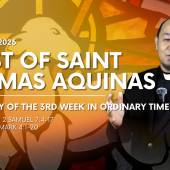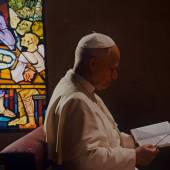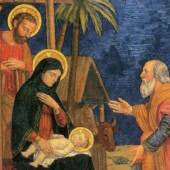The Word of God is powerful

July 16, Sunday of the Fifteenth week in Ordinary Time
Readings: First Reading: Isa 55:10-11 Ps 65:10, 11, 12-13, 14; Second Reading: Rom 8:18-23; Gospel Reading: Matt 13:1-23
Fruitfulness and accomplishment are words that presuppose humble and simple beginnings, slow and steady but long processes, and God’s blessings. Everything that bears fruits has to complete its stipulated time. The Word of God is powerful. It is like a seed that contains enormous potency. When the proper environment is provided, the seed begins to sprout, grow, bloom, and begin to bear fruits. Human life is a gift of God. Every person has the responsibility to make his/her life fruitful by accomplishing a God-given mission.
The First Reading from the Book of Prophet Isaiah highlights the glorious operation of the Word of God. Using powerful metaphorical language, God speaks through Prophet Isaiah that God’s creation has a purpose. Everything that is created by God has its purpose. Rain and water come down from heaven to render the earth fertile and build up water bodies. They help grow all types of flora and fauna. For example, with the help of rain and snow, God makes sure that he gives seed to the sower and bread to the eater.
The Word of God has a similar purpose. They have to accomplish certain projects and plans of God as preordained by God and prosper. They have to succeed in everything that God has intended for them. All those who preach the Word of God have to realize the power behind what they preach. What they preach should be the authentic Word of God: words of blessings and encouragement.
The Responsorial Psalm is a Davidic Psalm or song of praise and thanksgiving. It could have been composed during the time of harvest. It also looks like a lyrical poem. The author sings the praises of God for His benevolent action of watering the furrows of the earth abundantly, settling its ridges, softening it with showers, and blessing its growth. Unless and until God wishes nothing will happen on the earth.
It is God who produces bounteous crops, the wagons overflow with richness, the pastures of the wilderness overflow, the hills gird themselves with joy and the meadows clothe themselves with flocks and the valleys deck themselves with grain. Jesus makes use of this metaphor in the Gospel: “Consider the lilies, how they grow: they neither toil nor spin; yet I tell you, even Solomon in all his glory was not clothed like one of these. But if God so clothes the grass of the field, which is alive today and tomorrow is thrown into the oven, how much more will he clothe you -- you of little faith!” (Luke 12:27-28).
In the Second Reading from St. Paul’s Letter to the Romans, the apostle describes the status of life in the Spirit. It makes the believers understand and endure suffering. He analyses and compares the present suffering with the impending future glory. We cannot compare both of them. All of creation is awaiting and anticipating this coming glory. Together with the whole creation, humanity eagerly awaits groaning in labor pain for salvation. We, who have the first fruits of the Spirit, groan inwardly waiting for the redemption of our bodies.
The Gospel Reading from the Matthean account consists of the Parable of the Sower and its explanation. It is worth noting that Mathew chapter 13 is called the Parable Discourse and it contains seven parables and two explanations. Parables are one of the powerful media for Jesus to drive home what he wants to teach the crowd. The sower sows in well-prepared land and at the proper season/time.
I have always wondered why he was not careful not to let the seeds fall on the path, rocky ground, and thorny bushes. These seeds have gone waste. But Jesus’ explanation clears all our doubts when he compares these locations to the types of listeners that we are and the way behave in our lives. Even the seeds that fell on the good soil didn’t produce identical results. The variation in the results could be attributed to the circumstances in which one listens and puts the word of God into practice.
But what is insisted all along is fruitfulness and accomplishment of God’s will. Every person is responsible to accomplish the purpose for which s/he is born. Challenges keep coming in the form of hungry birds, rocks (lack of depth of soil), and choking thorny bushes in the forms of extreme political ideologies, economic disparities, and religious fundamentalism. There are many ad-intra problems in the forms of lack of loyalty and commitment, egoistic tendencies, and tension between personal life and public life.
Let’s keep the ears of our hearts open and listen to God’s Words being sown in our hearts to bear abundant fruits.
Radio Veritas Asia (RVA), a media platform of the Catholic Church, aims to share Christ. RVA started in 1969 as a continental Catholic radio station to serve Asian countries in their respective local language, thus earning the tag “the Voice of Asian Christianity.” Responding to the emerging context, RVA embraced media platforms to connect with the global Asian audience via its 21 language websites and various social media platforms.














